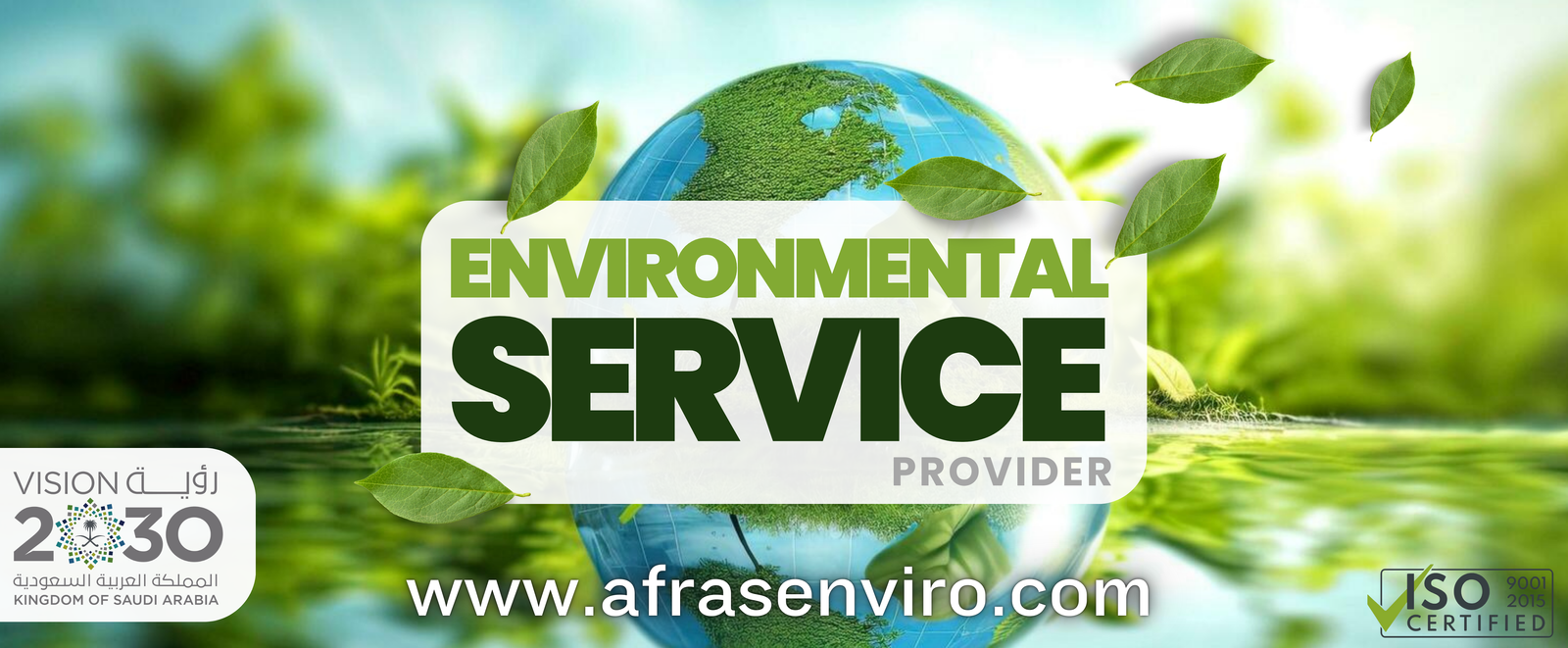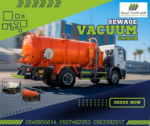Sewage Handling in the Kingdom of Saudi Arabia
Effective sewage management is critical for public health, environmental protection, and sustainable development in Saudi Arabia. The Kingdom has established guidelines, infrastructure, and practices to ensure safe and efficient sewage handling, particularly in urban and industrial areas.
1. Sewage Management Regulations in Saudi Arabia
- Environmental Protection Law: The Saudi government enforces strict regulations to prevent the contamination of water sources and protect ecosystems.
- Municipal Oversight: Local municipalities oversee sewage treatment plants and disposal systems to ensure compliance with national standards.
- Industrial Wastewater: Industries must pre-treat their wastewater before releasing it into municipal sewage systems.
2. Sewage Treatment Infrastructure
- Centralized Sewage Systems:
Major cities like Riyadh, Jeddah, and Dammam have advanced sewage networks that collect wastewater for centralized treatment. - Treatment Plants:
The Kingdom operates numerous wastewater treatment plants (WWTPs) to purify sewage and produce treated water for reuse in irrigation and industrial applications.
3. Key Steps in Sewage Handling
A. Collection
- Sewage is collected through an underground network of pipelines and manholes.
- Residential, commercial, and industrial areas are all connected to the sewage system.
B. Transportation
- Vacuum tankers transport sewage to designated treatment facilities in areas without centralized systems.
- These vehicles must comply with safety and hygiene standards to prevent leaks or contamination.
C. Treatment
- Primary Treatment: Removal of large solids and debris using screens and sedimentation tanks.
- Secondary Treatment: Biological treatment to remove dissolved organic matter.
- Tertiary Treatment: Advanced filtration and disinfection to produce high-quality treated water.
D. Disposal and Reuse
- Treated water is often reused for agricultural irrigation, landscaping, or industrial cooling.
- Sludge from treatment plants may be processed into biofertilizers or safely disposed of in landfills.
4. Challenges in Sewage Handling
- Urban Expansion: Rapid population growth in cities increases demand for sewage infrastructure.
- Sludge Management: Safe disposal or recycling of sludge requires advanced technology and expertise.
- Water Scarcity: Maximizing the reuse of treated water is vital in a desert environment like Saudi Arabia.
5. Innovative Solutions and Technologies
- Smart Monitoring Systems: Sensors and IoT devices monitor sewage networks to detect blockages or leaks early.
- Chemical Treatments: Specialized chemicals, such as coagulants and biosurfactants, are used to improve the efficiency of wastewater treatment.
- Energy Recovery: Biogas generated from sludge digestion is increasingly being used as a renewable energy source.
6. Best Practices for Sewage Handling
- Regular Maintenance: Ensure pipelines and manholes are inspected and cleaned to prevent clogs.
- Proper Disposal: Avoid dumping hazardous materials into the sewage system.
- Public Awareness: Educate communities on the importance of responsible sewage disposal and water conservation.
7. Leading Companies and Services in Saudi Arabia
- Afras Trading & Contracting Co.: Provides comprehensive sewage handling and environmental services, including sludge removal and treatment.
- Advance Environmental Services: Specializes in industrial wastewater treatment and sludge management.
- Local Municipalities: Offer services for residential sewage collection and disposal.
Conclusion
Sewage handling in Saudi Arabia plays a vital role in ensuring a clean and sustainable environment. The Kingdom continues to invest in advanced technologies, regulatory frameworks, and public awareness to address the challenges of wastewater management effectively. By adhering to these practices, businesses and individuals can contribute to a healthier and more sustainable future.





Leave a Reply